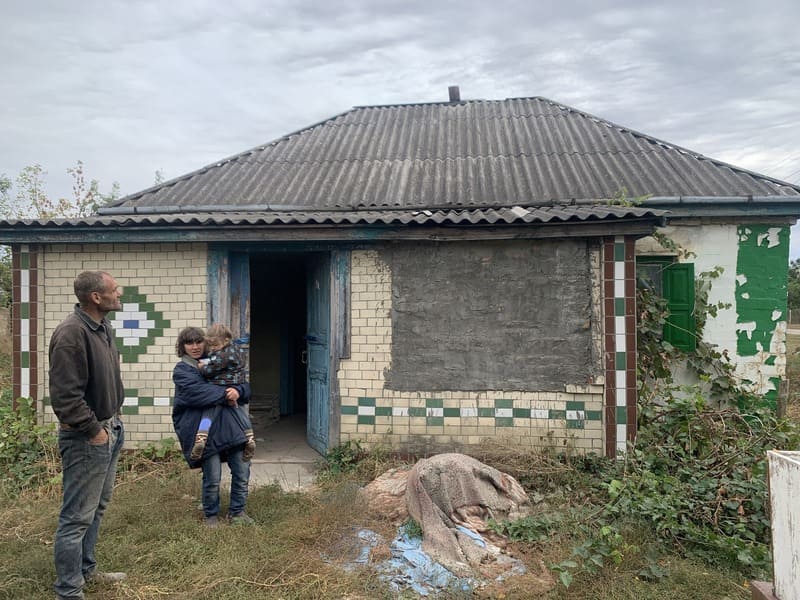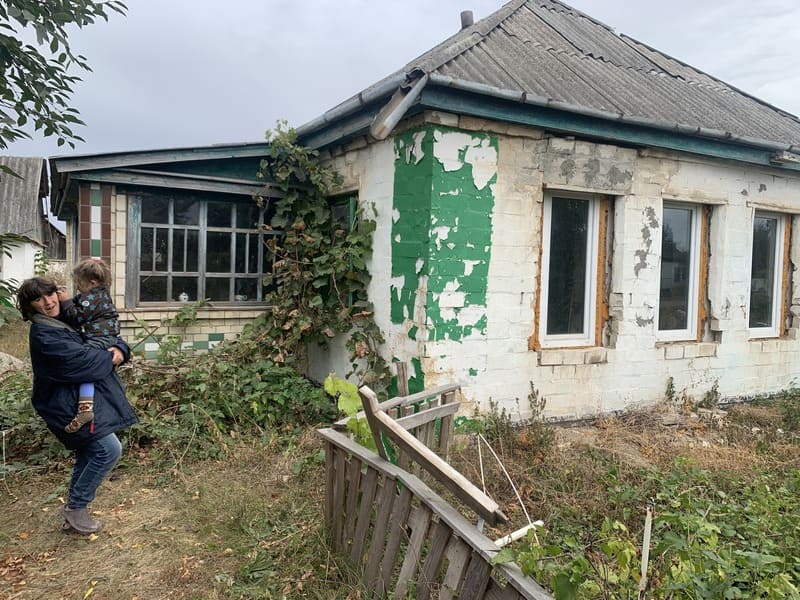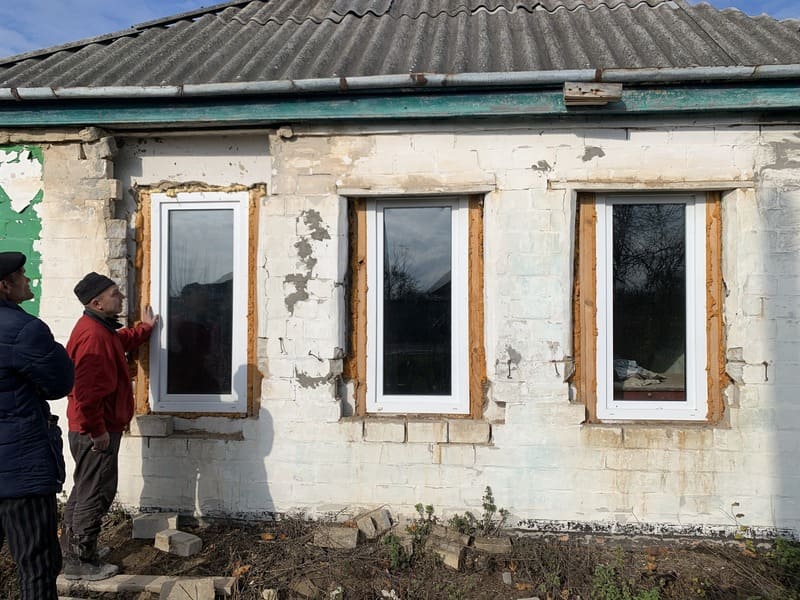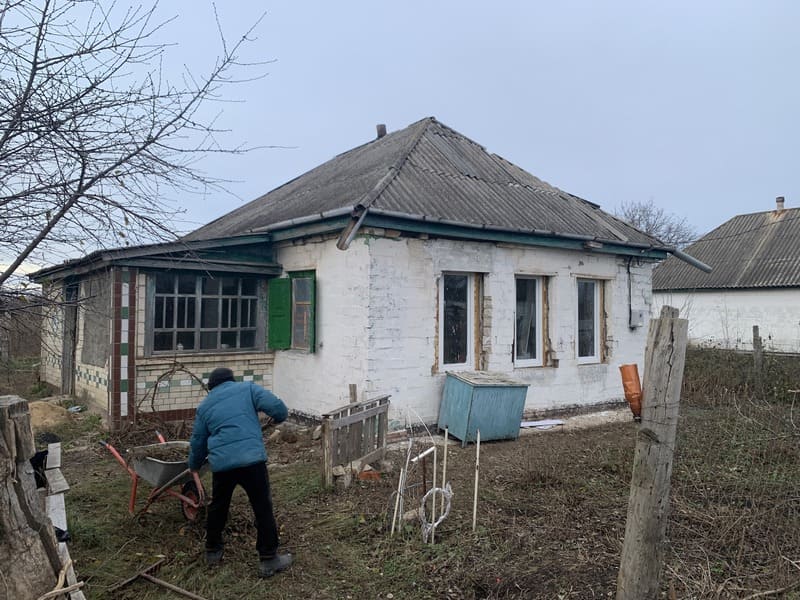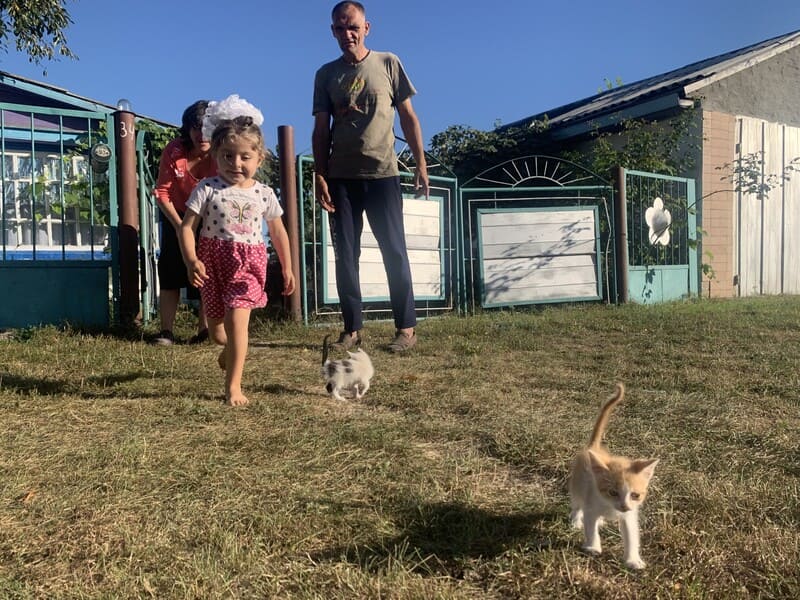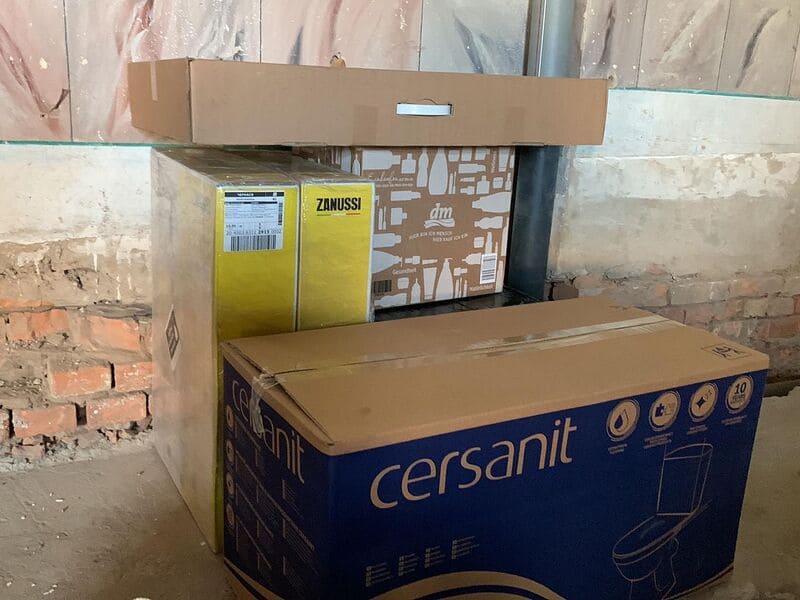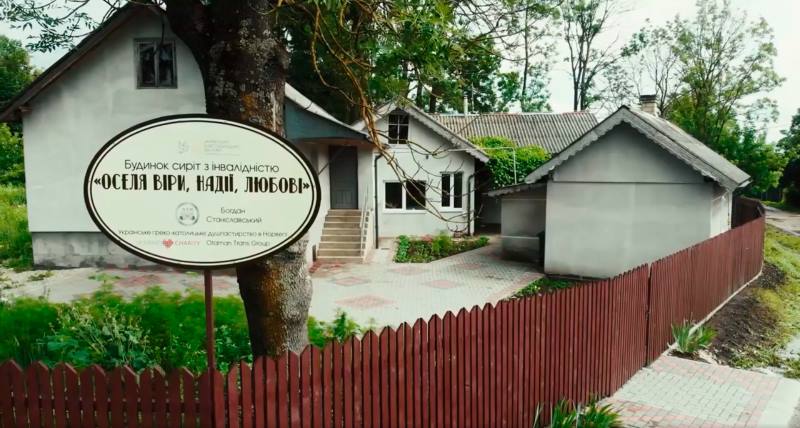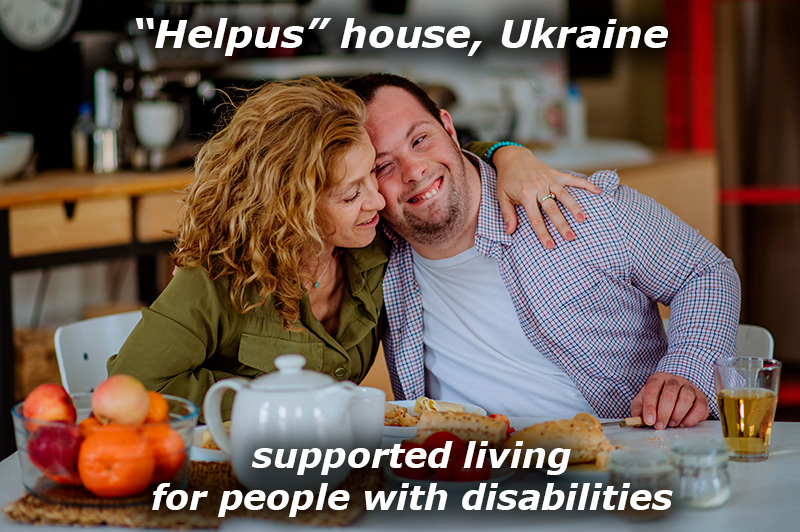
There is such a hard-to-pronounce word 'deinstitutionalization' (DI, for short), which means the transition from boarding schools as institutions for orphans and children with special needs to education in families and providing necessary services in communities. Also, there is deinstitutionalization of psychiatric boarding schools for adults, and a transition to more progressive and human rights-oriented assisted living facilities. Civil servants talk a lot about DI, but, unfortunately, there are few results in practice.
These are quite complex terms, not always clear to ordinary people. But all this is about the rights of special children and adults with disabilities to have decent living conditions, no worse than those of ordinary people. And now I will move from abstractions to a concrete example.

A couple of months ago, I wrote about Vitaly and Nataliya Bardysh. These people once lived for many years in psychoneurological boarding schools in the Zaporizhzhia region, but they always dreamed of a 'free' life. In 2015, I witnessed how they managed to leave the boarding school and settle in the village of Shcherbynivka in the Cherkasy region, where the local church provided them with rooms to live in. After some time, Vitaliy and Natalia got married; they had a daughter, Anya, and the church helped to buy an old house. Unfortunately, due to problems with the stove, the family was forced to settle in a temporary house in a nearby village, but they continue to dream of living in their own house.
Now Anya's daughter is 3 years old; she goes to kindergarten. Vitaly works part-time in the village and helps with construction, goes fishing (quite successfully), grows a little something in the garden, but all this work is not stable. The only stable but small source of family income is disability pensions and child benefits.
To achieve this, we need to cover the costs of installing a solid fuel boiler and a safe water heating system there. Also, equip the house with at least simple furniture and make cosmetic repairs. And no less important - this family still needs social support and counseling to adapt to normal life and raise their daughter.
The 'Helpus' Foundation and the Foundation from Zaporozhye decided to help this particular family. Thanks to your donations, we first bought them a refrigerator and a washing machine, and recently - a solid fuel boiler, a chimney 'sandwich' for it, a door, a toilet, as well as pipes for the heating system. The costs for this amounted to more than UAH 70,000 (1,900 US dollars). We also provided Vitaly with tools, putty, and paint, and he himself began to put the rooms in the house in order. Together with Vitaly, they put order around the house and made the house more attractive from the outside.
But we must move on with our efforts to help them. There is every chance that this family will welcome the New Year in their own renewed and safe house. To achieve this, we need to cover the costs of installing a heating system, update the floor in the kitchen and bedroom, buy and install 2 more windows, buy kitchen furniture, and cover other expenses - in total, it amounts to about $3,000 US dollars. And then there will be smaller but constant costs for social support.
This is quite a lot of money by today's standards. But this is the minimum that will allow the family to live safely in the middle of the community. It will allow Vitaly and Natalya to forget about the psychoneurological boarding school forever, and their daughter Anya will never end up in a children's boarding school. This is a small but real step of 'deinstitutionalization' that we have to take for these people.

